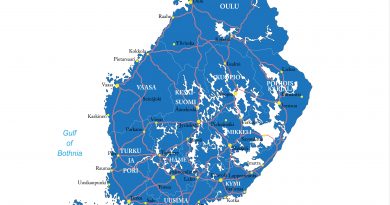Limits put on Shell’s Arctic drilling

WASHINGTON — The U.S. Department of the Interior gave Shell approval Wednesday for exploratory drilling at two sites in the Chukchi Sea.
But Shell won’t be allowed to drill deep into oil-bearing zones and will face limits to avoid impacting walruses in the region, the Bureau of Safety and Environmental Enforcement said. As a result, Shell will only be able to drill one site at a time.
Fennica damage causes delay
Since Shell’s icebreaker, Fennica, scraped its hull and had to head south to Portland, Oregon, for repairs that are likely to take weeks, the company won’t have an emergency capping stack on hand to hold back a blowout at the wellhead. BSEE said that Shell must have a capping stack on hand for drilling in oil-bearing zones in case the well needs to be shut down in an emergency.
Once the Fennica is repaired and ready to head back to the Chukchi Sea, Shell can submit an application to modify its permit, BSEE said.
“Without question, activities conducted offshore Alaska must be held to the highest safety, environmental protection, and emergency response standards,” said BSEE Director Brian Salerno. “Without the required well control system in place, Shell will not be allowed to drill into oil-bearing zones”
Wildlife protection
To protect the local walrus habitat, Shell will have to keep active drill rigs 15 miles apart. Since the two drilling sites that have been approved — Burger J and V — are closer than that, Shell will have to work them one at a time.
Wildlife observers — in addition to round-the-clock BSEE inspectors — will also be on hand.
Sen. Lisa Murkowski lauded the decision, but warned that the permits approved Wednesday are “not the final regulatory hurdle Shell faces.” She said she would keep a close eye on progress.
“With an estimated 25 percent of the world’s undiscovered conventional oil and gas resources and active exploration by countries like Russia, it’s critical that the United States set the standard for responsible development in the Arctic,” Murkowski said.
Environmentalists concerned
But environmentalists wary of Arctic drilling disagreed and raised concerns about the likelihood of drilling without harming the environment.
“As its ongoing missteps show, Shell is not prepared to operate safely in the Arctic Ocean where bad weather, darkness and floating ice increase the risks of an accident, and there is no proven way to clean up spilled oil,” said Oceana CEO Andrew Sharpless. “The government’s approvals for Shell’s drilling fly in the face of common sense. The Arctic Ocean is too important to trust to Shell, and our government must stop bending rules to accommodate the company,” Sharpless said.
Franz Matzner, of the Natural Resources Defense Council, said that “Shell shouldn’t be drilling in the Arctic, and neither should anybody else.” He laid the decision on President Barack Obama and said it “has lit the fuse on a disaster for our last pristine ocean and for our climate.”
Related stories from around the North:
Canada: Greenpeace responds to report Canada is ill-prepared for Arctic oil, Radio Canada International
Finland: Finns still sharply divided over wind power, Yle News
Greenland: Arctic oil and gas must stay in ground to restrict warming to 2°C says study, Blog by Mia Bennett
Iceland: From Arctic Circle 2013-2014, a big drop in the price of oil, Blog by Mia Bennett
Norway: Norway surpasses Russia as top gas supplier, Barents Observer
Russia: Rosneft buys time in Arctic, Barents Observer
United States: U.S. Coast Guard gears up for Shell’s Chukchi season, Alaska Dispatch News



